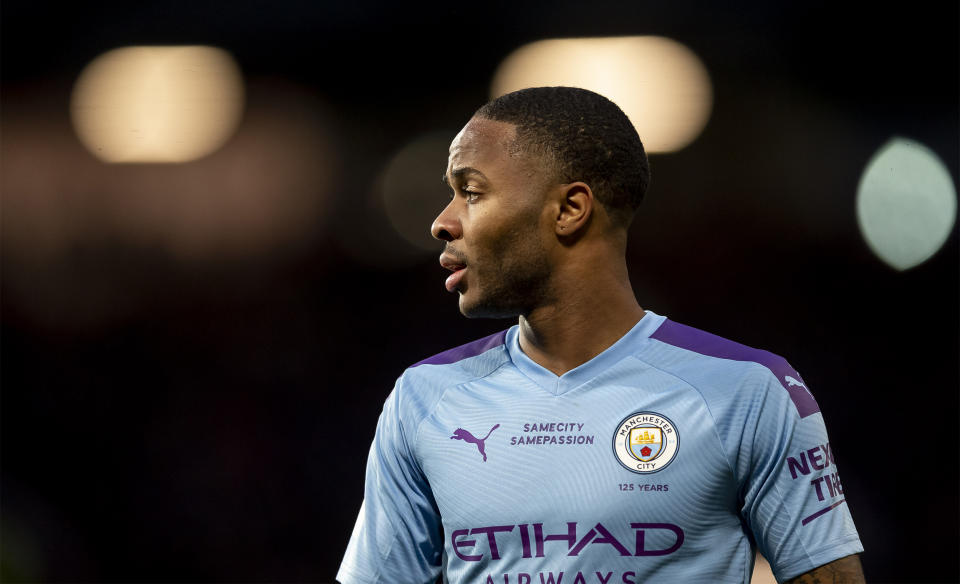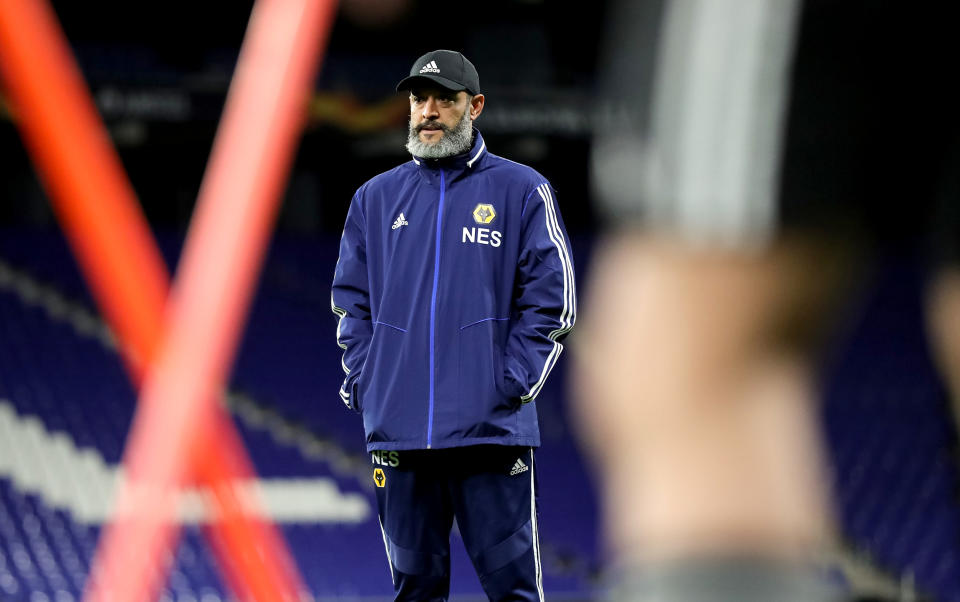English soccer's push to fight racism is reminder of how long it has plagued the game
LONDON — As English soccer fans settle down to watch Manchester City take on Arsenal on Wednesday in the English Premier League’s long-awaited return after coronavirus stopped play in March, it will be clear something has changed.
Not only will the stadiums be empty — broadcasters are allowing fans to turn on artificial crowd noise if they want — the names of stars such as Sergio Agüero and Alexandre Lacazette won’t appear on the back of their jerseys. Instead, all players’ shirts will say the same thing: “Black Lives Matter.”
It’s the result of a push by soccer stars to demonstrate their support for the global anti-racism movement sparked by the killing of George Floyd in police custody.
“We, the players, stand together with the singular objective of eradicating racial prejudice wherever it exists,” said a statement released by the league on Friday on behalf of players from all 20 teams. The league added that it would support any players who took a knee in protest before games.
But this renewed push to tackle racism head-on means there is also renewed focus on attempts to remove it from the game.
Last weekend a group called the Democratic Football Lads Alliance, along with the far-right organization Britain First, protested in London against the removal of statues linked to racism and the slave trade. Some of the mostly white, male crowd attacked the police, resulting in Prime Minister Boris Johnson condemning the protesters for “racist thuggery.”

But while hooliganism within English soccer has been confined to the fringes in recent decades, abuse aimed at Black players — both in stadiums and on social media — remains a problem to this day.
“The evidence of racism in English football speaks for itself,” said Dr. Jamie Cleland, a British researcher who studies racism in sport at the University of South Australia.
“Yes, the racist abuse inside stadia has decreased from the hostile environment of the 1970s and 1980s, but we still see it,” he said. “We’ve also now got the advent of social media where a lot of racist abuse goes on.”
Related: Black Lives Matter support dominates Premier League restart
This season, a number of stars, including Manchester City and England striker Raheem Sterling, have spoken out about the racism they’ve experienced both online and during games. On Tuesday Sterling posted a video featuring several big-name soccer stars voicing their opposition to racism.
“Fundamentally, we still have issues that exist in our game that we've never eradicated and we need to make a priority,” said Troy Townsend, head of development at Kick it Out, English soccer’s equality and inclusion organization. He is also the father of Andros Townsend, the Crystal Palace and England player who’s played almost 300 professional games.
“When you work in the space that I do, you kind of realize, how far have we really come?” Townsend said.
Both Cleland and Townsend point to the predominantly white crowds visible at most Premier League stadiums — often based in cities with significant racial diversity — as evidence that more needs to be done to ensure Black and minority ethnic fans feel comfortable attending games.
“The Black fan has never really felt safe or comfortable,” Townsend said. “You scan a stadium and you can see the lack of representation.”
“Football needs to reflect and look at how it encourages more fans from different backgrounds and different ethnicities to be able to feel they can go to a stadium,” he added.
But it’s not just fans, teams and the league itself also need to look at the “structural racism” within their hierarchies, Cleland said.
“There’s a significant number of Black players, but are they being given opportunities to coach or manage at high levels in English football? I think the proof is in the pudding.”
Nuno Espirito Santo, of Wolverhampton Wanderers, is the only top Black coach in the Premier League at present. The top coaches of the other 19 teams are white. Affirmative action could be required to tackle the lack of representation, Cleland suggested.

“There has been talk of incorporating this ‘Rooney Rule’ where they have to shortlist at least one minority ethnic candidate candidate per senior coach position, which has been obviously very effective in the NFL,” he said.
“There's lots of resistance to it,” he added, “but then you've only got to look at the governance structure of English football to find that it's very much populated by white men.”
Townsend also points to the “embarrassing” low level of Black and minority ethnic representation on Premier League team boards.
“That’s something that the game has to be challenged on and the game has to address.”
Nevertheless, allowing players to display “Black Lives Matter” is a significant moment in the fight to address racism in the game, Townsend said
“It's a message from the players and the authorities within the game that actually Black lives do matter, and they'll be making a real change about how they represent those Black lives within their industry,” he said.

